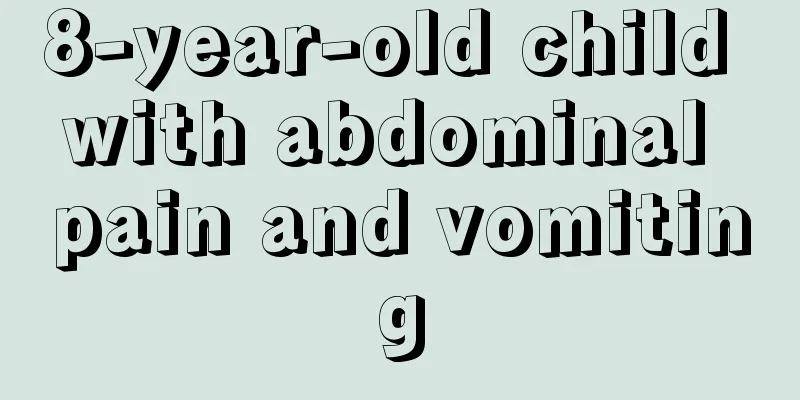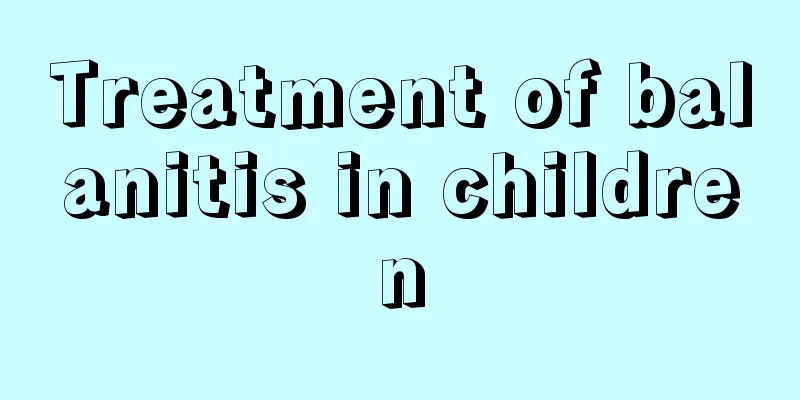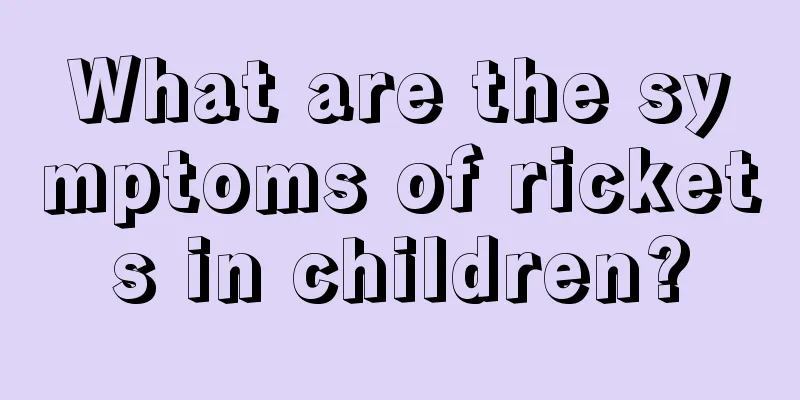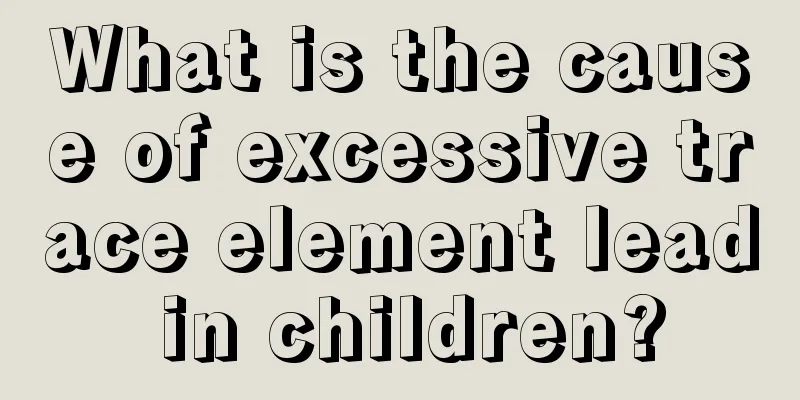8-year-old child with abdominal pain and vomiting

|
The body of an eight-year-old child is already in the middle stage. At this time, the child's body will undergo a second development, and the appetite is relatively strong. However, there are many physical conditions, which may cause abdominal pain, and may be accompanied by diarrhea, nausea, and vomiting. In this case, the cause must be found out first, and then slowly adjusted and treated. Children with persistent abdominal pain and vomiting should be alert to intestinal obstruction Abdominal pain in children is the most common symptom in pediatric surgery clinics and is also a headache for parents. The constant crying caused by abdominal pain in infants and young children often leaves parents at a loss. Abdominal pain in school-age children often delays their schooling and affects their studies. Abdominal pain in children is common in functional diseases, such as intestinal flatulence, gastroenteritis, abdominal lymphadenopathy caused by upper respiratory tract infection, gastrointestinal dysfunction, constipation, etc. The abdominal pain symptoms of these diseases will disappear after medical or home treatment. Among the surgical diseases that cause abdominal pain in children, organic diseases are the most common and often require hospitalization and surgical treatment to be cured. These surgical diseases have different characteristics in children of different ages: intussusception and incarcerated hernia are common in infants and young children, acute and chronic appendicitis are common in school-age children, and intestinal obstruction caused by various reasons is common. In addition, there are some uncommon diseases, such as congenital intestinal malformations, abdominal tumors, congenital hydronephrosis, Crohn's disease, intestinal tuberculosis, etc. Clinical manifestations are often non-specific, and irregular abdominal pain as the first symptom sometimes does not attract enough attention from parents. When a child suddenly experiences unexplained persistent abdominal pain and vomiting, parents must pay attention and take the child to the hospital for a comprehensive examination to avoid delays in timely treatment, which may lead to adverse consequences or even life-threatening conditions. Shenyang Children's Hospital recently admitted a 6-year-old boy who was in good health and seldom caught a cold. He had intermittent vomiting for no apparent reason and paroxysmal abdominal pain. He had no fever or diarrhea and was in general good condition. He was diagnosed with acute gastroenteritis at another hospital and was given intravenous fluids and anti-inflammatory drugs, but his condition did not improve and the child still had vomiting and abdominal pain. After arriving at our hospital, an outpatient X-ray revealed acute intestinal obstruction and emergency surgery was performed. During the operation, it was found that the child had congenital malformation of the intestine and suffered from a disease called "Meckel's diverticulum". Meckel's diverticulum is an abnormal section of intestine that forms an abnormal cord that strangles the normal intestine and causes acute intestinal obstruction. The child received timely medical treatment and saved his life, but because the strangled intestine had already been necrotic, 30 centimeters of the intestine had to be removed, which was a heavy price to pay. The causes of intestinal obstruction in children are different from those in adults. Intestinal obstruction in adults generally has a history of abdominal surgery, abdominal trauma, and some are caused by tumors. A large proportion of intestinal obstruction in children is caused by congenital malformations, such as Meckel's diverticulum, intestinal duplication, mesenteric cyst, omental cyst, mesenteric hiatus hernia, internal hernia caused by various congenital cords, etc. This type of intestinal obstruction in children caused by congenital malformations has atypical symptoms, acute onset, rapid development, and is difficult to diagnose before surgery. Often, the cause of the disease can only be discovered during surgery. If it is not treated in time, the mortality rate is high. It is a major threat to children's life and health. |
<<: What to do if your 10-year-old child vomits
>>: 8 What to do if children vomit or have diarrhea
Recommend
Neonatal startle reflex
Many new parents do not understand some things ab...
Children with fever and no other symptoms
Compared with adults, children's physical res...
What should I do if my child has diarrhea after a fever?
It is necessary for families to know what to do i...
What is the cause of acute convulsions in children?
Infantile convulsions are a common disease in chi...
Can children's pupils be dilated when they have eye inflammation?
If you have ever had an eye examination, you actu...
What to eat to treat childhood obesity
Parents who have children with obesity must be ex...
What diseases should children be careful of if they have a long-term cough?
Children's long-term cough can make our paren...
New parenting concept: Be a new mother who shows weakness
Lack of responsibility, inability to be self-reli...
Diagnosis of Myasthenia Gravis in Children
Myasthenia gravis in children is an extremely har...
How to educate children when they fight_How to educate children when they are bullied
When two or three children play together, fightin...
Causes of recurrent urticaria in children
Rubella is a common disease among children and al...
The fastest massage technique for children's abdominal pain
It is quite common for children to experience abd...
The reason why babies have a lot of eye mucus
I believe everyone knows what eye boogers are. Th...
The child hit his forehead and got a big bump.
If your child has a bump on the forehead, you nee...
Causes of vaginal adhesions in babies
When children are young, they will be stuffed wit...









